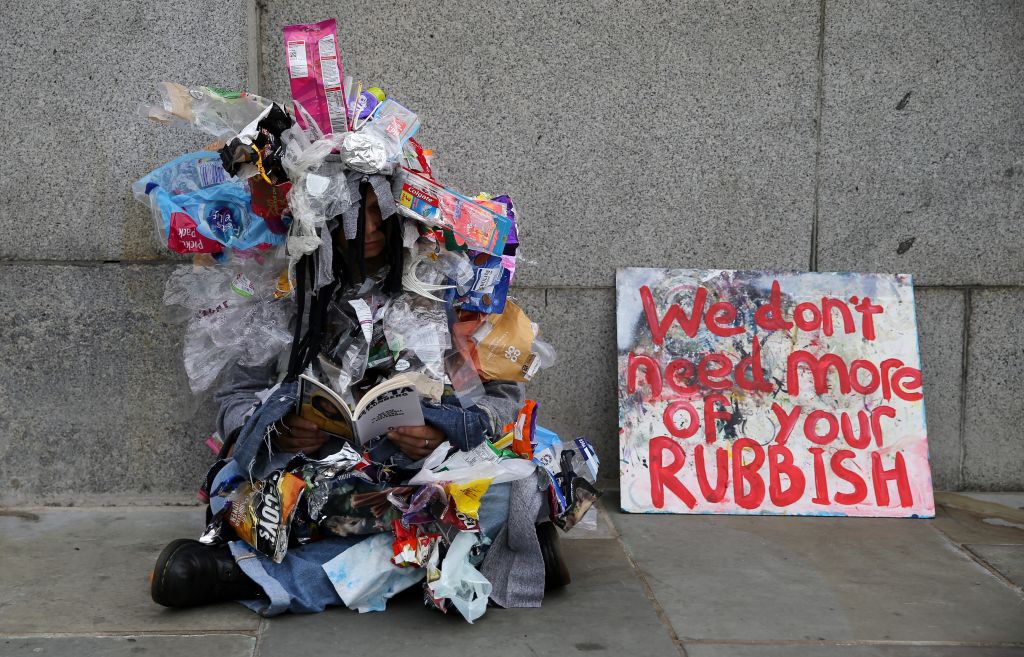Extinction Rebellion’s leaders have arrived in London by fossil-powered train, car and bus – brandishing their mobile phones full of rare Earth metals, to protest against wasteful consumption. Extinction Rebellion is calling for urgent action on climate change. The good news for the government is that there is a radical green policy that would placate the mob and simultaneously tick several policy boxes too.
Stripping away the rhetoric, Extinction Rebellion is making two demands – one is that countries commit to immediate radical action to cut carbon well ahead of the 2050 date in the current inter-governmental agreement (not endorsed by the world’s biggest polluter, the United States).
The second demand is that governments abide by the decisions of a series of Citizens Assemblies “for climate and ecological justice.” This is the movement’s great weakness.
Its founder Roger Hallam says it would be wrong for the political “elite” to propose policies to end pollution and global warming. In fact, the last thing most people want is an endless national debate on a hopelessly complex subject (remind you of anything?). It is the job of politicians to offer policies – that’s what we pay them for.
The Government’s outgoing chief science adviser professor Sir Ian Boyd told the BBC in his valedictory interview that we must “reduce demand” for energy, fuel, food, clothing, and everything else. Sir Ian says government failed to offer incentives to assist the public in making those changes. It can use the tax system do so in the future.
Carbon tax is a stick. Successful policy will also need a carrot. But XR have nothing to say about the carrot. That omission provides the opening for a radical Tory environmental policy that offers, at least to some, an immediate change in their daily lives.
It can provide the land and legal backing for several dozen experimental off-grid communities – eco-villages of 300 homes, which can grow to be small towns over time. This could win hundreds of thousands of votes and simultaneously advance other key policies in the areas of energy, housing, and rural affairs.
What is meant by off-grid? No mains utilities of any sort. That’s a huge infrastructure saving on its own. A new housing development once had the expense of joining up to the power and water grids. These are no longer needed using the latest technology.
I am not suggesting government should pay for these homes, just that it could subsidise the minimal infrastructure and feasibility studies required for developers and householders to step in and begin building.
At a time when housing in this country is facing multiple crises – of affordability and of supply and, in the case of social housing, of funding and of allocation – we need to be willing to embrace brave and new solutions. Off-grid settlements help solve four problems; they provide cheap housing, reduce energy use, improve food security and kickstart rural regeneration. Small off-grid homes could be delivered for an average cost of £50,000 per unit, built on low-grade agricultural land and with no utility connections. What’s not to like?
One objection to off-grid settlements is that the same laws that would allow a group of industrious, conservation-minded settlers to grow their own community, would also allow a bunch of new-age travellers to plague neighbourhoods with waste, crime and drugs. But it should not be beyond the wit of lawyers and politicians to come up with a way of encouraging the deserving cases and preventing the undeserving ones. Isn’t that what we pay them for?
Off-grid living is almost mainstream in some countries, particularly in rural areas. Aspects of it – for example local energy generation – have started to permeate government policy, but previous attempts to pioneer off-grid approaches in the UK have failed on the grounds that there is no public demand – that ordinary people would not want to live in an off-grid home, where they would have access to at best 25 per cent of the energy supply of a “normal” house (offset by better home design and insulation); they would not want to live in an off-grid street, where houses had to share limited heat and power, and they would not want to live in an off-grid town or village, which would be constantly subject to shortages of water, power and other supplies.
Well, ordinary people are now on the streets of our major cities demanding exactly that kind of privation. So let’s give them what they say they want.
Nick Rosen is editor of off-grid.net






Comments